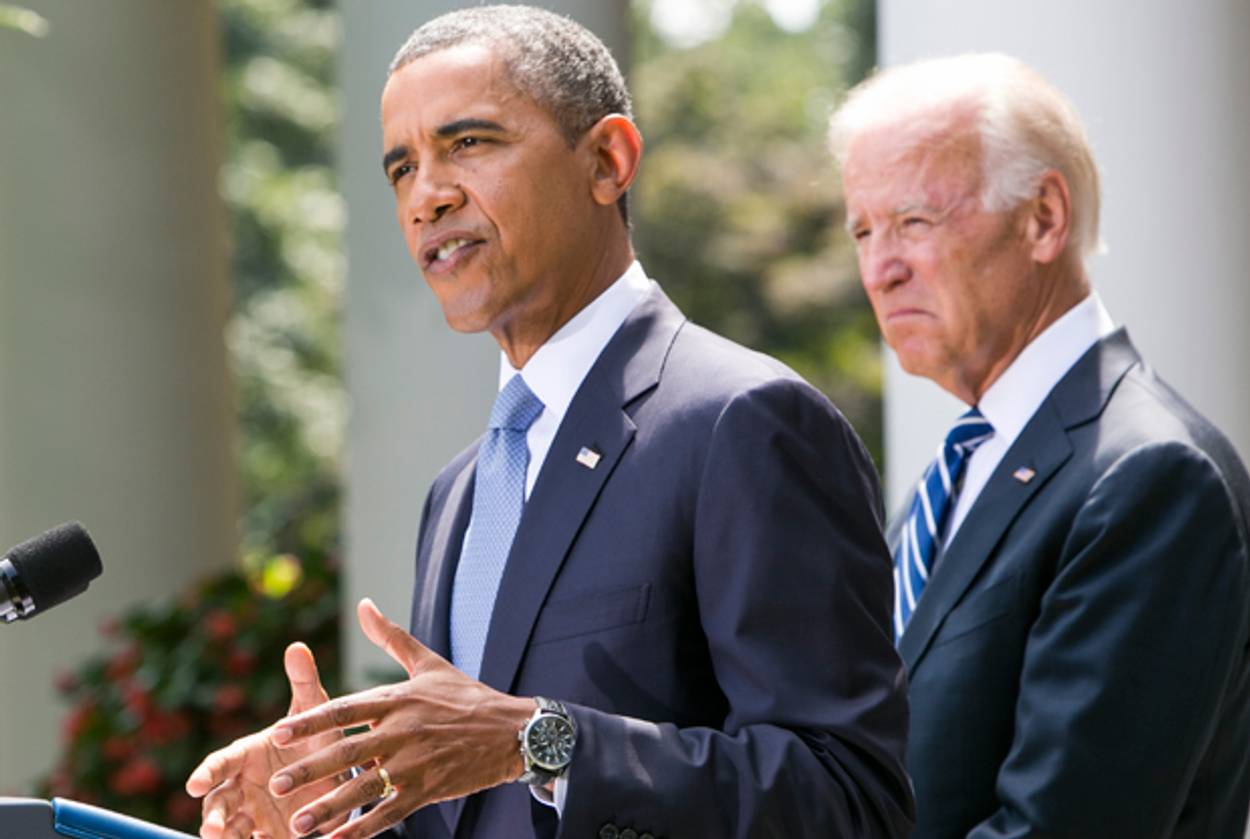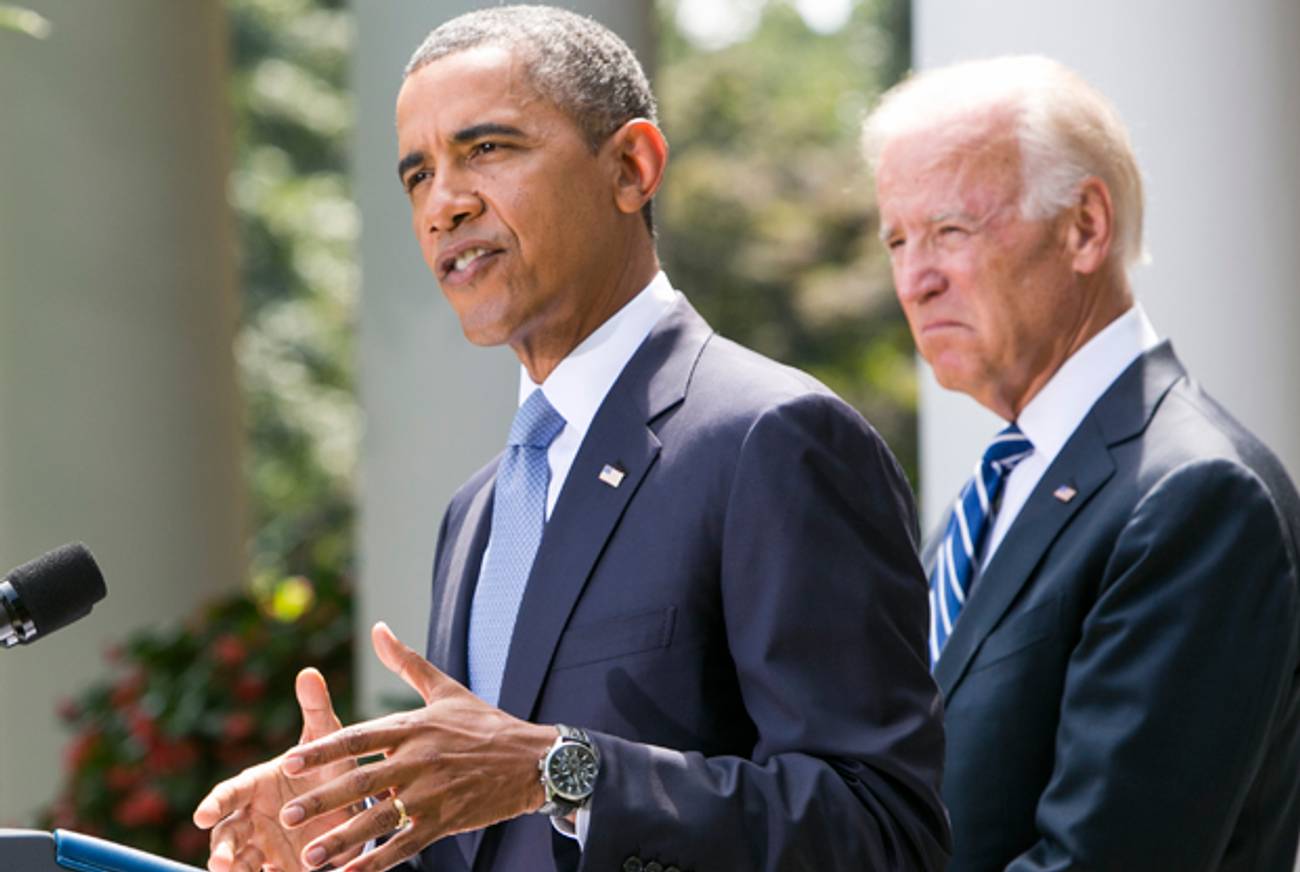How AIPAC Became the Syria Strike Scapegoat
Obama asked AIPAC to support a strike. Now everyone’s blaming the Jews.




Who is driving Obama to war against Bashar Al-Assad? I’ll give you three guesses.
I bet you didn’t need the other two. As Andrew Sullivan has asserted, the answer, of course, is the Jews. AIPAC is “storming the hill,” writes Sullivan, because the pro-Israel lobby is “fixated in forcing Obama to start yet another major war in the Middle East.” He went on: “It’s not in Israel’s interests that either Assad or the Jihadist rebels gain the upper hand,” he wrote in part 2 of a series brazenly titled “AIPAC Wants this War.” “And yet they will happily ask the United States to risk its own potential enmeshment in a wider war—just to keep the conflict going.”
It’s an odd assertion, especially as it’s quite clear that the arrow pointed in the other direction: it was the White House that asked AIPAC to put its resources at Obama’s disposal and “do the president a solid,” as one official at a Washington-based Jewish organization told Alana Goodman at the Washington Free Beacon. And as Eli Lake of the Daily Beast reported last week, AIPAC “leadership received a phone call from a senior White House official” last week after Obama announced he would seek congressional authorization for a Syria strike. The message, writes Lake, “was clear that AIPAC’s participation in the lobbying effort to pass the authorization ‘would be helpful.’”
Of course Sullivan is not alone in picturing the Jews as warmongers. If both House and Senate Democrats and Republicans are divided amongst themselves on whether to grant the president authority to take military action against Assad, there is nonetheless a growing bipartisan consensus on how we got here. But radical voices on both sides agree that the Jews must have something to do with it. The conservative site Red State “connects the dots” and contends that AIPAC is at the center of a vast conspiracy—from the Washington Institute for Near East Policy to my colleagues at the Weekly Standard—pushing the US toward war in Syria.* And when AIPAC’s pulling the strings it’s a done deal.
The conclusion of which is that the White House has put pro-Israel organizations—the Anti-Defamation League, the American Jewish Committee, the Simon Wiesenthal Center, and the Republican Jewish Coalition all joined AIPAC in supporting Obama’s call for authorization—in a rather uncomfortable position. As Steven J. Rosen, a former senior AIPAC official, wrote last week, the organization’s support for a military strike “is a major change in precedent.” “AIPAC struggled to stay out of the Iraq War vote when that issue was before Congress, and did not openly endorse that authorization,” he wrote in Foreign Policy. Nonetheless, “Israel’s detractors never cease asserting that the Iraq War was fought on Israel’s behalf.”
So why has AIPAC come out so publicly on Syria and subjected itself to the accusations of Jewish manipulation and warmongering that were certain to come? To be sure, erasing the red lines on Assad’s use of chemical weapons would, as Rosen writes, “undermine the campaign to prevent Iran from completing its nuclear weapons program.” But it’s not just about Iran. It’s much bigger than that. It’s about American security assurances to allies around the globe—not just Israel, but also, for instance, Taiwan and South Korea,Poland, Czech Republic, Jordan and Saudi Arabia, to name just a few key American partners. In other words, AIPAC and other pro-Israel organizations are backing the president because they understand the authorization in terms of American interests and American strength. “Without a strong United States,” Rosen writes, “the world of our children will descend into a very dark void, because after America there is no one else waiting in line to assume leadership except these forces of evil and chaos.”
The issue then is Obama. His Syria policy has been incoherent since the beginning of the anti-Assad uprising in March 2011. From his inability to see an American interest in crushing a brutal dictatorial regime allied with Iran, to his wobbling over the red line he drew himself last August, Obama’s vacillations give evidence of American weakness. It is precisely this sort of political atmosphere—uncertainty, hesitation, fear—that is most conducive to conspiracy theories. A different sort of conspiracy theorist might be tempted to argue that what we’re seeing is not the Jews pushing America to war, but a president who by asking pro-Israel organizations to march in front wants to put Jewish influence and power under the floodlights. Or, more charitably, that what we’re seeing now is America’s Jewish community trying to save a weak and incompetent executive from himself.
* The original version of this article incorrectly represented the views of Kenneth Timmerman, president of the Foundation for Democracy in Iran, as expressed in the Daily Caller. We regret the error.
Lee Smith is the author of The Permanent Coup: How Enemies Foreign and Domestic Targeted the American President (2020).